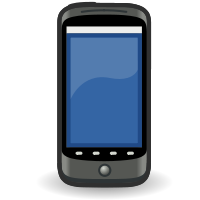 First published on MedCityNews.com. People living with cystic fibrosis, growth hormone deficiencies and acne were among the most likely to report using their smartphones to find health information in a new survey from Manhattan Research.
First published on MedCityNews.com. People living with cystic fibrosis, growth hormone deficiencies and acne were among the most likely to report using their smartphones to find health information in a new survey from Manhattan Research.
 First published on MedCityNews.com. People living with cystic fibrosis, growth hormone deficiencies and acne were among the most likely to report using their smartphones to find health information in a new survey from Manhattan Research.
First published on MedCityNews.com. People living with cystic fibrosis, growth hormone deficiencies and acne were among the most likely to report using their smartphones to find health information in a new survey from Manhattan Research.
With its 2013 Cybercitizen Health U.S. study, the pharmaceutical and healthcare market research firm set out to help healthcare marketers understand how patients and caregivers are using the internet and smartphones throughout their healthcare journey.
Based on phone and online surveys of more than 8,600 U.S. adults, the firm estimated that some 95 million Americans look for health information on their smartphones — 25 percent more than were doing so last year.
The firm found that adoption of mobile solutions varied among patient groups. These patient groups were the ones most likely to report using mobile health solutions:
- Cystic fibrosis
- Growth hormone deficiency
- Acne
- ADD/ADHD
- Hepatitis C
- Migraine
- Crohn’s disease
- Chronic kidney disease
- Generalized anxiety disorder
- Bipolar disorder
It’s not surprising to see many chronic conditions on the list. It is very surprising, however, not to see conditions like diabetes, asthma and sleep disorders. While Manhattan Research didn’t spell out exactly how they pulled this list together, it noted that it used data from adults in condition groups with at least 50 respondents.
“While adoption of mobile health apps from pharma companies is so far low, they are strongly influential for those users,” Manhattan Research said in a summary of the report, which also points to the important of pharmaceutical websites that are optimized for mobile viewing.
“Many pharma marketers still underestimate both the opportunity and complexity of the mobile channel,” said VP of Research Monique Levy in the summary. “What’s clear is that patients are using these devices throughout the patient journey, for quick questions and deep research, and increasingly to actually manage their condition and care.”









